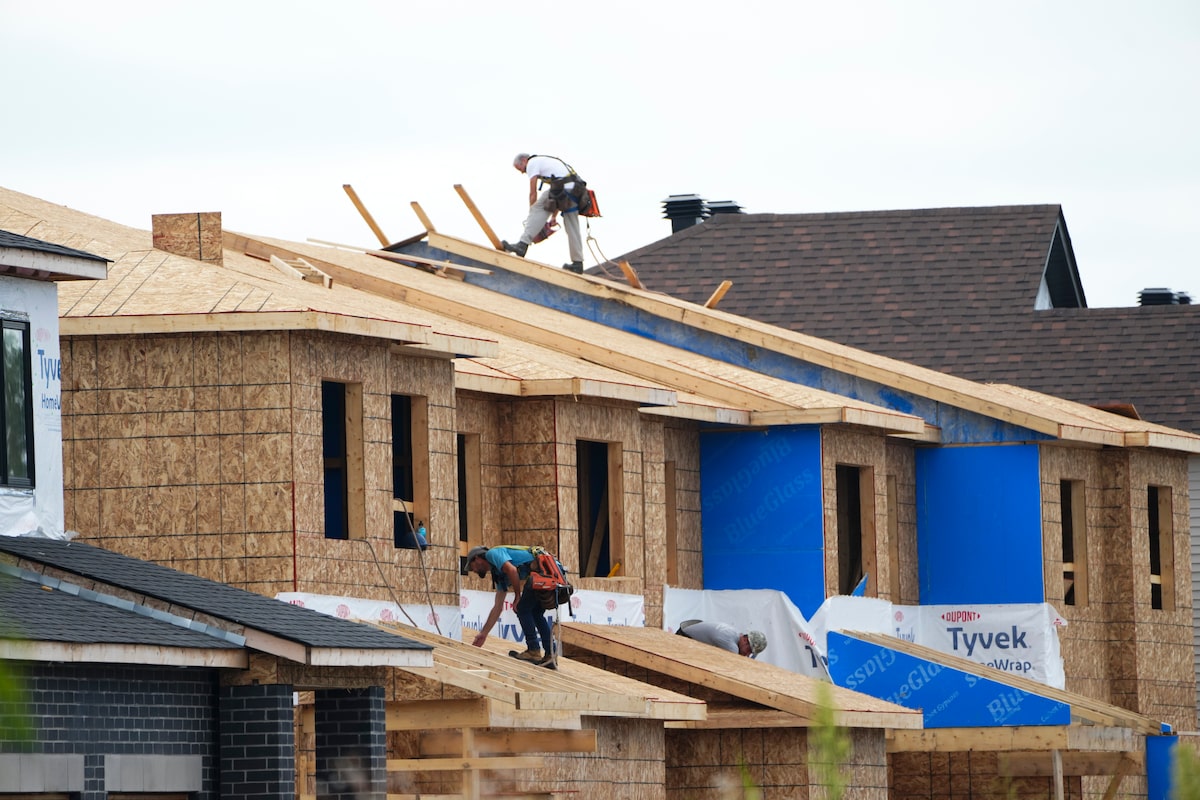Canada invests 7.74 per cent of its GDP in housing, well above even the U.S. at 4.10 per cent.Sean Kilpatrick/The Canadian Press
Among the Group of Seven nations, Canada invests the largest share of GDP in housing and the second-smallest share in intellectual property (IP), according to the Organisation for Economic Co-operation and Development.
Housing investment in Canada, which stands at 7.74 per cent of its GDP, is well above Japan at 3.88 per cent, the United Kingdom at 3.96 per cent, and the United States at 4.10 per cent. Part of this discrepancy is because of Canada’s faster population growth, but much of it reflects our economy’s persistent fixation on real estate.
In a previous column, I noted that Canada’s housing market began to diverge sharply from the U.S. and the U.K. between 2006 and 2008. The main driver, in my view, was an overly loose monetary policy that persisted for more than a decade.
Although Canada needed some stimulus after the 2008 financial crisis, the near-zero Bank of Canada benchmark rate fueled cheap borrowing, encouraging real estate speculation and driving up home prices. Unfortunately, this cheap money seldom reached ventures or small businesses.
By 2007, housing investment as a share of GDP in Canada had broken away from U.S. levels. It topped 7.4 per cent in 2016 and has never retreated since. This surge in housing investment did not deliver proportional increases in supply, as a notable share of capital flowed into luxury rebuilds and was eroded by high development fees.
At the same time, growth in IP investment – which had been rising before 2005 – stalled. In contrast, both the U.S. and the U.K. have steadily increased IP spending since then. The U.S., which leads in IP investment, has fostered a generation of globally competitive tech companies, while Canada’s corporate landscape remains dominated by legacy players.
Money in an economy is like blood in the body – it must flow where it’s most needed. Our brain is only 2 per cent of our body mass yet receives 15 to 20 per cent of the heart’s output.
Likewise, capital must reach vital sectors – when too much goes to one area, others are starved. A healthy economy depends on a strong, risk-taking innovation sector to create exportable products, high-quality jobs and global competitiveness.
We must make private-sector investment in intellectual property more attractive than speculative real estate, through measures such as larger capital gains tax breaks for venture investments, similar to the qualified small business stock exemption in the U.S. New ventures drive lasting job growth and prosperity, while housing typically creates only short-term employment.
Hanif Bayat, PhD, is the CEO and founder of WOWA.ca, a Canadian personal finance platform.

